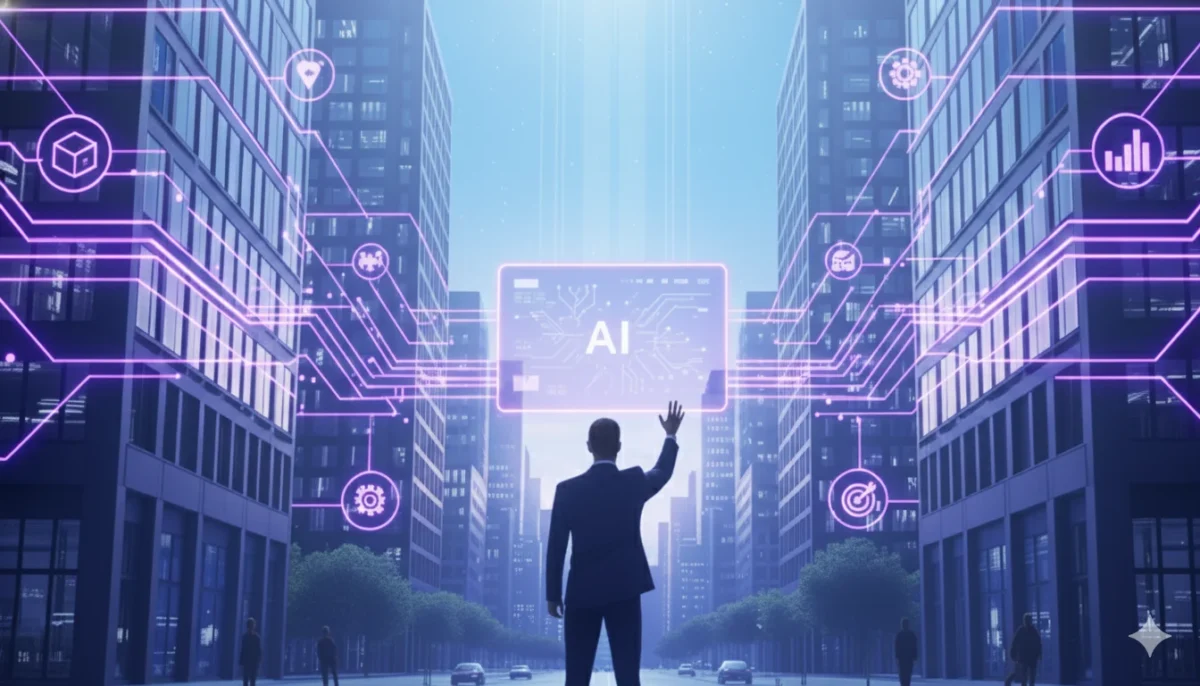Whenever we talk about artificial intelligence, most people jump straight to fear: job losses, automation, machines taking over. But something much more practical is happening right now. AI isn’t replacing every job. It’s replacing the old way of doing work. And Google’s CEO Sundar Pichai summed it up perfectly when he said that no company is immune to AI.
What this really means is that every industry — hospitals, banks, retail, manufacturing, real estate, logistics, marketing — is about to rethink how work is done. The companies that move first will win. The companies that hesitate will fall behind. And the people who understand both business and AI are about to become extremely valuable.
Think about it for a second. For years, work has been built around rigid software systems. Endless dashboards. Manual reporting. Clicking through menus. Filling forms. Fighting interfaces instead of focusing on outcomes. Now we’re entering a world where AI doesn’t just answer questions, it helps execute decisions. It anticipates what you need, automates repetitive steps, and learns how you work.
Google is already building toward that direction. Gemini is becoming a universal layer across Gmail, Docs, Sheets, Android and Search — not just generating text, but guiding workflows. Soon your spreadsheets will analyze themselves. Your inbox will prioritize emails that actually matter. Marketing campaigns will auto-optimize. Customer service will resolve issues before they become complaints.
So here’s the real shift: the value is no longer in learning tools. The value will be in redesigning work itself.
That’s where consultants, MBAs, workflow designers and operators come in. Someone needs to decide what should be automated, what decisions need a human, where AI can cut costs and where it can drive growth. Someone needs to connect business goals with intelligent systems. And someone needs to translate real-world problems into AI-driven solutions.
AI isn’t eliminating human expertise. It’s magnifying it. People who understand how organizations function will become the architects of the next decade. They won’t write code. They’ll orchestrate intelligent workflows that drive results.
So if you work in strategy, operations, finance, HR, healthcare, law, marketing or supply chains, the message is clear: this is your moment. AI won’t replace you. But someone using AI might.
The companies that succeed will be the ones that learn to adapt. And the individuals who succeed will be the ones who stop watching the AI wave and start steering it.
